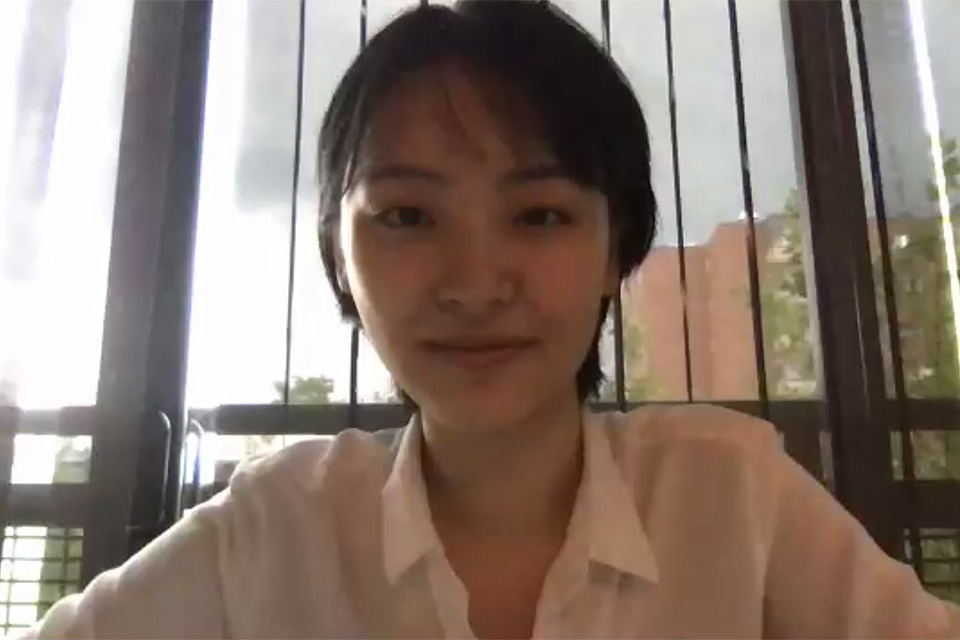Luochen Liu '22
Lee Lab, Department of Biology
Brandeis University

Fellow Reflection: Conducting Research During a Pandemic
The biggest challenge I’ve encountered in the current COVID circumstances is the lab time constraints due to the shift work that has been implemented in my lab. Since June 22th, I have been working the afternoon shift from Monday to Friday in the lab, which is a limited time that can be difficult to manage. As I am working on a molecular biology project, many experiments in my research are time sensitive. For example, stopping at one step in the middle of an experiment would cause potential denaturation of samples; also, one of my experiments, polysome profiling, requires an ultracentrifuge spin time that is as long as 2-3 hours, which needs to be followed immediately by two other experiments. Aiming to overcome this challenge, I have learned to cooperate with people in the lab and plan my experiments accordingly. I share a bench with our lab’s graduate student Rebecca, who works the morning shift and studies the same protein with me. We have weekly zoom meetings and communicate via text message on a daily basis to plan out schedules that work best for both of us and share ideas on our research. For example, I would plan my longer experiments on the days that she has shorter experiments, and vice versa. Also, Becca is kind enough to set up experiments for me in the morning to save wait time. In this way, I have managed to work as productively as possible in this new environment. I have learned to cooperate with other scientists on my research, which is essential for my future scientific career.
Another challenge I am facing is learning new research techniques that I have not performed before. In the past when I was trying to learn a new technique, people in the lab would teach or watch me perform them right next to me. However, with the current social distancing standards, this kind of teaching is not an option. Alternatively, my PI, Dr. Amy Lee would go over the protocols for the techniques with me in advance. She is always kind enough to emphasize on the important details of the experiments, and she is more than willing to give me a detailed explanation any time I have a question. With the help of Dr. Lee and other people within the lab, I have managed to master new techniques including nanobody purification, lentivirus production, and midi-prep etc. this summer.
Giving Back
A major way I give back as part of the fellowship is by helping other people in the Lee Lab with their research. For example, Rebecca, our lab’s graduate student, studies a topic closely related to mine, and she taught me many research techniques and knowledge when I started on my research topic. She recently became a mother in the middle of the global Covid-19 pandemic, due to which her planned childcare and other services are no longer available. She is back in the lab for more two months now, meanwhile finding time to take care of her newborn baby, which is very difficult as all her experiments are time-sensitive. So, at times when she was not around, I would help with her experiments by doing preparation work or completing the experiments. I admire her for doing an amazing job as both a scientist and a mother, and I am very happy to be able to help with her research. I also help other people in the lab, such as by sharing the protocols I wrote, keeping an eye on their experiments, etc, as they have done for me. It is highly rewarding and important for me to know that I can be a helpful and trustworthy scientist to other people as a member in a group of loving and amazing people that is the Lee Lab.
In addition, I think my best capable way of giving back is by dedicating my best effort to my research and by providing help and information to those who are interested in scientific research, especially in the Asian female community. Despite the increasing number of Asian female scientists, the overall figure is still small, and it is still challenging for us to work and thrive in the STEM field, especially while pursuing Ph.D. and professor positions. Those challenges are undoubtedly obstacles to Asian women interested in careers in STEM like myself. While facing these obstacles, role models such as Dr. Tu Youyou, Dr. Nieng Yan, and my PI, Dr. Amy Lee, have given me enormous hope and motivation to do research, and I hope that I will be able to give hope and motivate like them someday. As an international student and an Asian woman in STEM, I am truly grateful for having the opportunity to do research in a genuinely diverse and equal environment. Hearing about my research, many Asian girls reached out to me with questions and comments. I am always more than willing to chat with them, answer questions about research and science, and encourage more people to study science and join research labs. Knowing that I can have a positive influence, even though a rather small one at the moment, through my research on people interested in science in my community is extremely meaningful, and it motivates me to continue pursuing a science career, because more diversity in STEM results in nothing but excellence.